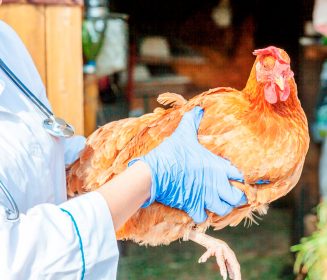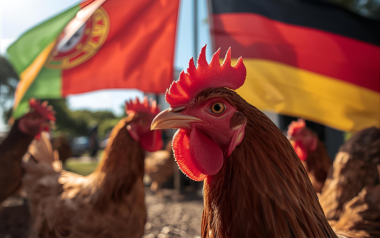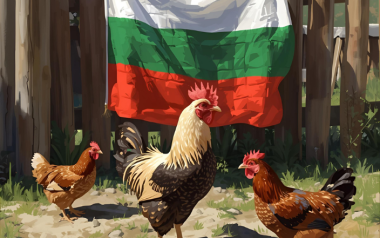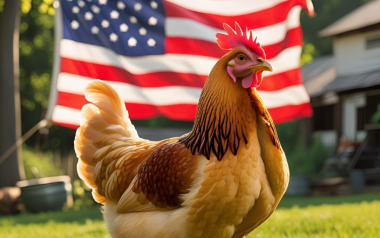Sources: Available upon request.
17 Oct 2024
European countries on avian flu alert
In recent weeks, several European countries have heightened their alert levels for avian influenza, also known as bird flu, due to an increase in cases among poultry and wild birds.
In recent weeks, several European countries have heightened their alert levels for avian influenza, also known as bird flu, due to an increase in cases among poultry and wild birds. This move comes as health agencies in France, Germany, and Great Britain respond to the evolving situation with highly pathogenic avian influenza (HPAI) infections.
France’s response
France has raised its alert level to “moderate” across the mainland as of October 16, 2024. The French Ministry of Agriculture justified this decision based on the rising number of HPAI cases in both wild birds and poultry. Migratory birds are identified as the primary vector for introducing the virus to poultry farms. This autumn, France has already confirmed five HPAI outbreaks in poultry, with the most recent cases detected just days ago.
Germany’s measures
Germany has also increased its alert level for avian flu, driven by the seasonal arrival of potentially infected migratory birds and cooler temperatures that favor the virus’s survival. The Friedrich-Loeffler Institute, Germany’s national veterinary reference laboratory, highlighted the importance of this measure as autumn progresses. The country has seen a gradual spread of HPAI cases in wild birds, prompting the need for heightened vigilance.
Situation in the United Kingdom
In the United Kingdom, the Department for Environment, Food & Rural Affairs (Defra) has reported a steady increase in HPAI cases among wild birds. Eurasian migratory birds, particularly waterfowl, continue to arrive in the UK after passing through regions with reported HPAI cases. Defra now assesses the risk of HPAI virus incursion into wild birds as moderate, with the likelihood of regular occurrences in the coming months. The risk to poultry varies, being very low for farms with stringent biosecurity measures and low for those with suboptimal hygiene.
Broader European context
Beyond these three countries, other European nations are also grappling with HPAI outbreaks. Hungary has reported the highest number of outbreaks in the past three weeks, with ten cases primarily in commercial duck flocks. Italy confirmed its first HPAI cases of the season on October 1, affecting poultry farms in Veneto, Emilia-Romagna, and Lombardy. Poland has also seen three outbreaks linked to the same virus variant since the start of October.
Human health implications
While the risk of human infection with avian influenza remains low, health authorities continue to monitor the situation closely. The European Food Safety Authority (EFSA) emphasizes that human infections are rare and no human-to-human transmission has been observed. However, those in close contact with infected birds or contaminated environments are advised to take precautions.
In conclusion, the increased alert levels across Europe reflect a proactive approach to managing the risk of avian influenza. By enhancing surveillance and biosecurity measures, European countries aim to mitigate the impact of this virus on both poultry and public health.







































